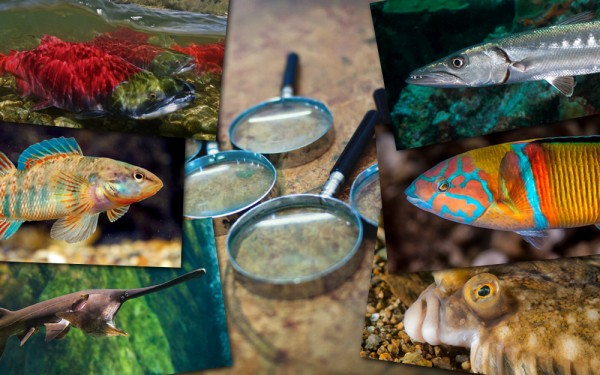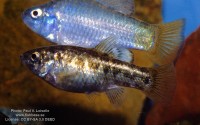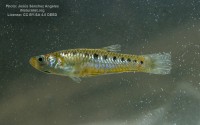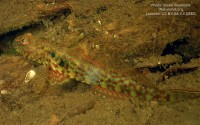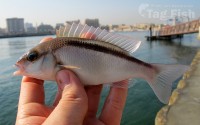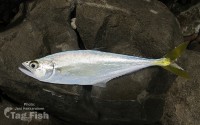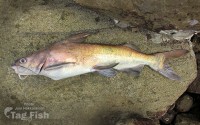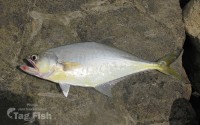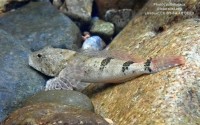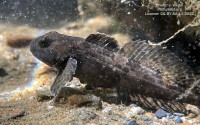California lizardfish
(Synodus lucioceps)

Classification
General data
The California lizardfish (Synodus lucioceps) is a species of lizardfish primarily inhabiting the Californian coast. It has a long, brown body, which offers it camouflage in its habitat, the sandy bottom of the ocean. From its hiding spot on the bottom it ambushes small fish and squid. California lizardfish are oviparous and are believed to spawn in the summer months.
The California lizardfish derives its name from its elongated cylindrical body and lizard-like head and mouth. The body is uniformly brown on its back, with its sides fading to tan and a white belly. It has a dorsal fin at its midback, no spinous fin rays, a small adipose fin, yellowish pelvic fins ahead of its dorsal fin with about eight or nine rays each, and a forked caudal fin.
The longest fish recorded was 25.17 inches (63.9 cm) long, and may weigh up to 4 pounds (1.8 kg).
Because of its long body and sharp teeth, the California lizardfish is occasionally mistaken for the barracuda. The barracuda, however, is silvery rather than brown and has two similar-sized dorsal fins with a wide space between them, whereas the lizardfish only has a single dorsal fin with a tiny fleshy fin behind it.
The California lizardfish occurs from Guaymas, Mexico to San Francisco, California. Some specimens have even been found as far north as British Columbia, Canada and as far south as the Galapagos Islands. Although it is most commonly found on sandy bottoms in shallow water ranging from 5 to 150 feet deep, specimens have been found at depths up to 750 feet.
The California lizardfish is not sought by most anglers because its flesh has a strong taste resembling iodine, but can uncommonly be taken in fairly large numbers by anglers fishing for halibut and other shallow water bottom-dwelling fish. They will take most baited hooks.
